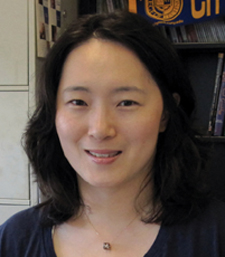City Tech Prof Studies Health Of Older Korean Residents of NY

DOWNTOWN BROOKLYN — “In Korea, parents sacrifice their lives for their children, and that’s what my parents did for me. I always wanted to find a way to pay them back, and figured, why not study about aging so that I can serve even more people?”
So says Soyeon Cho, assistant professor of human services at New York City College of Technology (City Tech) in discussing her research on physical and mental health disparities in the Korean-American populations in Brooklyn, Queens, Manhattan and New Jersey (especially Fort Lee and Palisades Park).
Cho’s current research builds on a two-year study by the National Institute of Mental Health (NIMH), Mental Health Literacy Among Korean Americans, for which she was project manager. The study, which surveyed approximately 350 Korean-American adults living in Florida, revealed disparities between older Korean-Americans and the general population in their attitudes and knowledge about mental health issues.